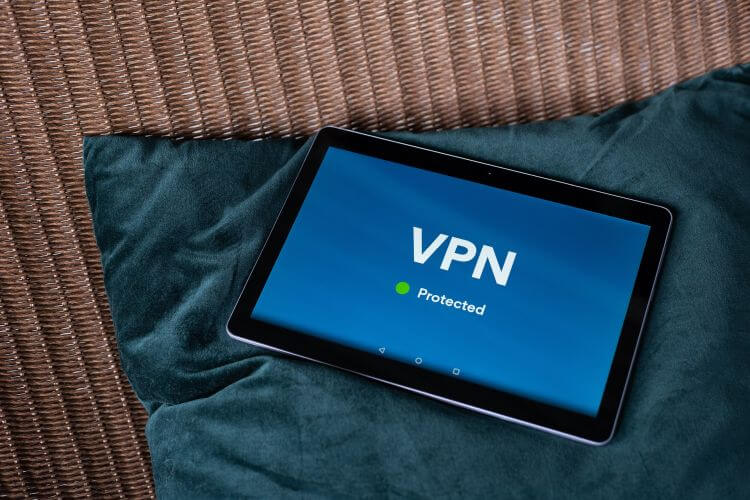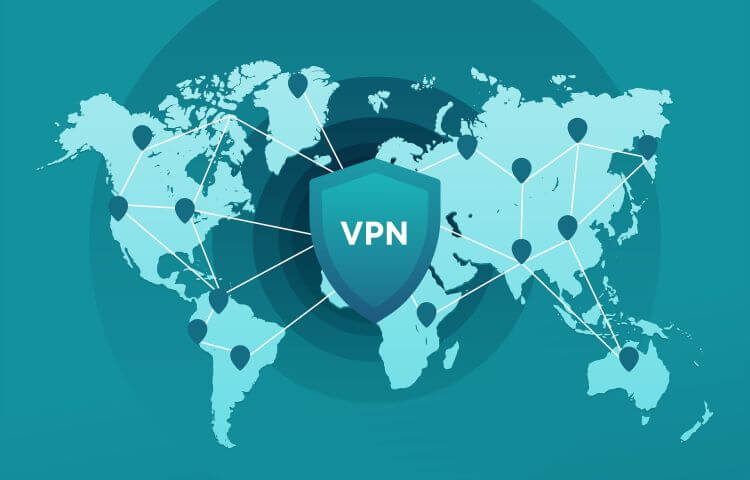Virtual Private Networks (VPNs) are getting more attention as people look for ways to maintain online safety and preserve their data and personal information. VPNs for international travel are becoming particularly popular. This is for both safety reasons but also to access some websites that are off limits outside their home country.
What is a VPN?

Every computer on earth that connects to the internet has what is known as an internet protocol address, or more commonly known as IP address. This IP address identifies your computer and where you are located. If you’re currently using a public WiFi network at your local coffee shop to read this blog post on your phone and you don’t have a VPN network active, that means computer-savvy people can find out where you are right now and what you are looking at.
As you can imagine, most people, preppers in particular, bristle at this idea. There’s a reason that so many preppers talk about operational security, or OPSEC, so often. It’s because there is an inherent understanding amongst human beings that privacy matters.
It’s not that you’re looking at anything vile or disgusting. You may simply be ready blog posts, or scrolling our Facebook page. Perhaps you’re looking at online storefronts that sell emergency food in buckets and you don’t want anybody eavesdropping on your internet traffic to know that you have stored food at your house. Maybe you just don’t want the people around you to potentially know that you’re researching medical advice on living with herpes.
Do you see why privacy is important here?
If you aren’t using a VPN when you go online, all this information is readily available to any bad actor out there and with a minimum amount of software and training. It truly isn’t that hard to find this type of information on somebody.
VPNs protects the user in two ways. For starters, a VPN encrypts your internet traffic. This makes it so that even if somebody can intercept your internet traffic, they’re not going to be able to read it. They’re just going to see a list of jumbled letters and numbers that mean absolutely nothing without the key.
The second means by which a VPN protects the user is by spoofing an IP address from a different location. This means that I can be in Columbia watching post-apocalyptic movies, but it looks like I’m a guy browsing the internet in Sweden. A VPN makes it look like you’re somebody else, somewhere else.
Do You Need a VPN When Traveling Internationally?

Anyone using the internet while traveling should be using a VPN. It’s stupid enough to not be using a VPN while you’re at home or traveling about your town. It’s even worse to not use one as you travel internationally.
A VPN helps protect your information in areas of the world that have less online protections. As you’ve probably already picked up, there are many sites and topics one can’t visit or talk about when you are overseas that are perfectly fine when you are in the United States. Again, this has nothing to do with anything related to any illegal and unethical subject. This could be something related to religion. This could be something related to particular authors.
I’ve noticed that when I use a VPN server to make it look like I am in Europe that I have a very difficult, if not impossible, time attempting to access sites that are about firearms. These are all sites that are as innocent as it gets here in the United States, but if it’s discovered you’re searching restricted sites while overseas, you could end up in trouble.
Perhaps you still want to access these sites, but you don’t want that country to know that you are looking at these sites. Again, this is where a VPN can come in handy. These can often allow you to get around the country’s firewalls to still access those sites without having to worry about eavesdroppers figuring out that it is you that is accessing those sites. As of this writing, it’s even still possible to use a VPN in China!

And again, let’s not overlook the encryption capability of a VPN. As an American overseas, there is a very good chance that there are going to be hackers located at hotels all throughout the region surrounding the international airport, and they are looking for you. If they can hack into your finances, they will.
Another reason that you will want to use a VPN while you’re traveling is to save money on airfare. Let’s say you are spending the summer traveling throughout Europe. If it is found that you are currently in London searching for flights to Rome, you could potentially spend a significant amount of money more than what somebody from another country would.
If you use a VPN to make it appear that you are an internet user currently in Morocco who is looking for a flight from London to Rome, there’s a solid chance you’ll save a good bit of money. All you have to do to try this out is to turn on your VPN and start connecting to different servers around the world as you shop for the exact same airline tickets. You may be surprised with what you find!
3 Great VPN Services for International Travel
Now that we have discussed the need for a VPN (and yes, this is truly a need if you’re going to be using the internet anywhere), how do you choose the best of the best as you prepare to travel the world?
Here are my takes on what I believe to be three of the best options out there.
1 – Private Internet Access
This is one of my favorite VPNs out there. You have access to thousands of servers scattered throughout the world. AES 256-bit encryption is present, there’s an internet kill switch perchance you lose connection to the VPN, and you have a no-log policy with this company as well.
Perhaps the largest con of using Private Internet Access, ironically, is that it is located within the United States. What I like about these guys though is that they’ve been taken to court a few times to reveal the logs of their users and each and every time Private Internet Access hasn’t revealed a single log. That is the reason that people use a VPN in the first place – to protect their data – and it appears as if Private Internet Access does a dang good job of it.
2 – ExpressVPN
ExpressVPN has over 3000 different servers in 94 different countries. You can spoof your IP address at so many different locations, that it is virtually impossible that anybody will ever be able to find the server where your information is at in the moment.
You get AES 256-bit encryption (which is standard amongst the major players in the VPN world), so there is a good deal of security one can expect from ExpressVPN. A no-logging policy is present, something I consider essential with a VPN, and ExpressVPN can be installed on a phone as well. No activity logs are kept when you’re using ExpressVPN either.
All of this combined helps to make ExpressVPN an excellent VPN choice for international travel.
3 – NordVPN
This is one of the more popular VPN options out there. You’ll see TV commercials for these guys, and they’ve got a marketing campaign plastered all over the internet. They offer 5200+ servers throughout the world, your stock AES-256 encryption, and it apparently works well for the traveler that is in China.
It works across just about any platform you could want to use (Linux, iOS, Windows, etc.), and you can use it over mobile connections as well. You get three different security protocols you can run here too: OpenVPN, IKEv2/IPsec, and the experimental WireGuard. Though I’m most familiar with OpenVPN and IKEv2, I am very excited about WireGuard as it sounds (on the surface) to be a fantastic operating protocol.
According to NordVPN, WireGuard uses a fraction of the lines of code compared to OpenVPN, meaning it’s that much easier to find bugs within the system or to apply patches that don’t jack up everything else, so this is something to investigate further.

Other Online Safety Tips While Traveling
If you are traveling, one of the first pieces of advice I would give you is to not take your electronic devices you use to connect to the internet while you are at home in the United States. Unless you know what you’re doing, you are always leaving bread crumbs when you’re online, and those bread crumbs are likely stored on your devices as well.
The idea of your devices being taken from you at the customs of another country as all of your information is pulled off of your tablet, phone, or laptop, is not too far-fetched of an idea. This may even be happening without your knowledge.
Is that bag with your laptop you checked into the plane in your view 100% of the time? Are you 100% certain that a hack wasn’t perpetrated against your phone via Bluetooth as you were walking through the airport?
Nope.
It’s for this reason I recommend that you pick up a brand-new, sub-$100 device, such as a tablet from Walmart, that does not have a previous internet history before you begin your trip abroad. This way, if your devices do get swiped and analyzed by customs, there’s literally no information that can be gathered here.
I know many of you won’t follow my advice on that, particularly digital nomads who work while traveling. This isn’t really an option for them. That’s why I also recommend protecting your electronic devices from outside signals while in transit. The protection methods are the same as protecting your devices from an EMP. For more information, read about the Faraday phone sleeve and how to protect your laptop from an EMP.
You Need a VPN 100% of the Time You’re Online
There are most certainly a wide berth of VPNs out there to choose from if you are preparing to travel internationally, but these are three of the options out there that I am familiar with and trust.
What are your thoughts on VPN use, though? Are there other VPN options you prefer? Are there specific VPNs out there that you are adamantly opposed to? Why? Let us know in the comments below.
